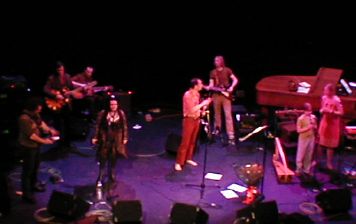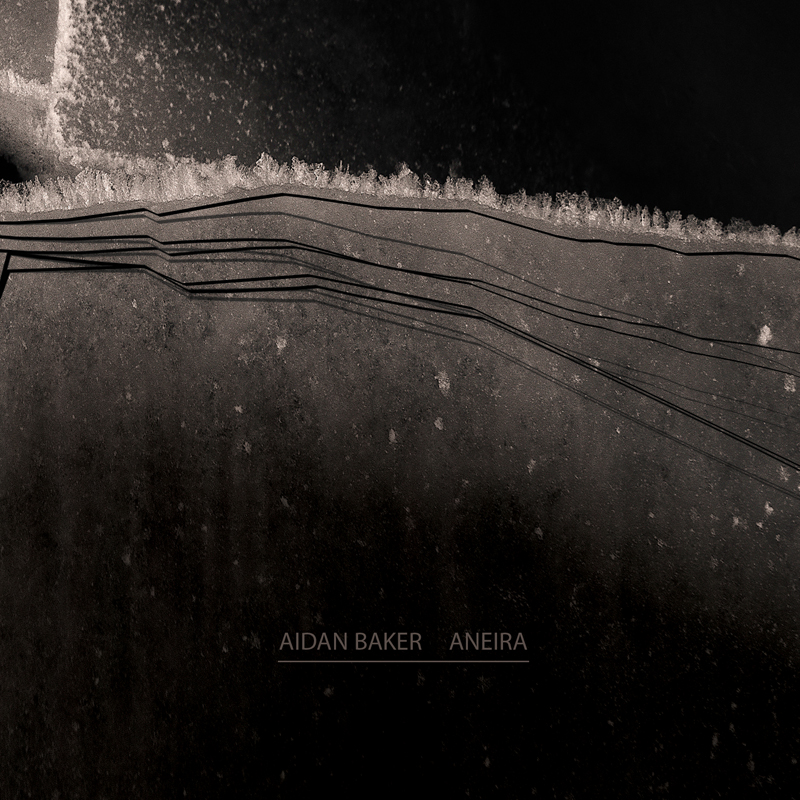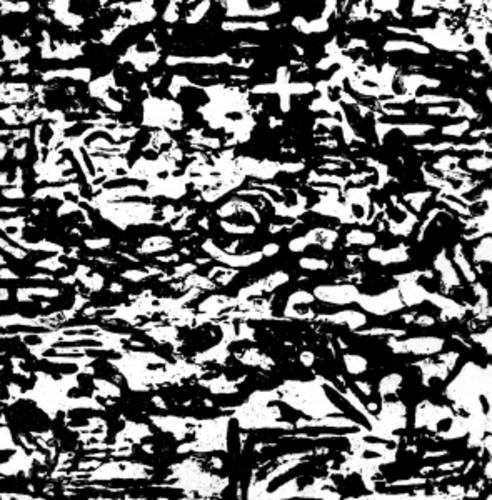The Bloomsbury Theatre, London
6-7th April 2001
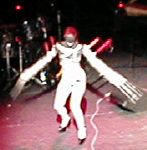
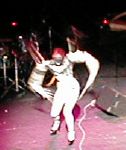
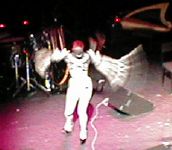
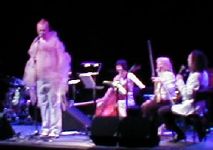 Perhaps if Billie Holiday had received nuptial visits from the spirit of La Cage Aux Folles and produced an offspring, that might explain how the universe has been blessed with Antony Hegarty. Perfoming live for two nights in London in support of Current 93 and the David Tibet Show, Antony And The Johnsons provided us with a glimpse into the nature of that blessing. And like a book is always better than the movie, Antony live was far better than even the CDs would let on. He poured himself onto a stage before a bedazzled audience, swathed in pink chiffon, as elegant as an angel, and sang like a violin. With the most beautiful voice of all time, ethereal and evocative, Antony glided through a repetoire of first night older songs, second night newer ones, and left barely a dry eye in the house. The vocal qualities of Antony really do defy description, as does his delivery of personal pain and humour and devotion. It might be best if I stick to the facts of the two performances which have echoed in my head for days afterwards.
Perhaps if Billie Holiday had received nuptial visits from the spirit of La Cage Aux Folles and produced an offspring, that might explain how the universe has been blessed with Antony Hegarty. Perfoming live for two nights in London in support of Current 93 and the David Tibet Show, Antony And The Johnsons provided us with a glimpse into the nature of that blessing. And like a book is always better than the movie, Antony live was far better than even the CDs would let on. He poured himself onto a stage before a bedazzled audience, swathed in pink chiffon, as elegant as an angel, and sang like a violin. With the most beautiful voice of all time, ethereal and evocative, Antony glided through a repetoire of first night older songs, second night newer ones, and left barely a dry eye in the house. The vocal qualities of Antony really do defy description, as does his delivery of personal pain and humour and devotion. It might be best if I stick to the facts of the two performances which have echoed in my head for days afterwards.
 Both nights followed a basic program, opening with a primordial dance by Johanna Constantine dressed as a Shakesperean Manga demon and casting a gorgeous shadow of invocation over the plain stage. Next our hostess, Dr Julia Yasuda came out for an introduction of the most avant order. Night one, Dr.Julia came to a podium and spoke through the traditional “Free At Last” spiritual. Night two, and she appeared onstage nude except for a painting of the American flag covering the front of her body and performed the introduction on a Morse code machine. Dr. Yasuda deserves some explanation, though I am not entirely capable of giving one. Some strange hybrid like an unlined 58-year old Japanese albino hermaphodite, she is beautiful beyond the notions of avant, and frightening to the core. Both of her performances were completely simple, and stunning, and probably caused more questions of the audience than any other portion of the shows.
Both nights followed a basic program, opening with a primordial dance by Johanna Constantine dressed as a Shakesperean Manga demon and casting a gorgeous shadow of invocation over the plain stage. Next our hostess, Dr Julia Yasuda came out for an introduction of the most avant order. Night one, Dr.Julia came to a podium and spoke through the traditional “Free At Last” spiritual. Night two, and she appeared onstage nude except for a painting of the American flag covering the front of her body and performed the introduction on a Morse code machine. Dr. Yasuda deserves some explanation, though I am not entirely capable of giving one. Some strange hybrid like an unlined 58-year old Japanese albino hermaphodite, she is beautiful beyond the notions of avant, and frightening to the core. Both of her performances were completely simple, and stunning, and probably caused more questions of the audience than any other portion of the shows.
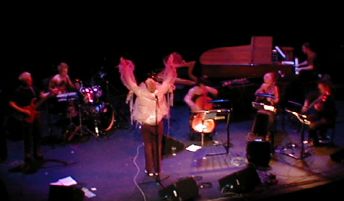 Following Dr. Julia, Antony And The Johnsons took stage and began straight away with the torch song mesmerization sets. Antony’s Johnsons were made up by the following demi angels: Todd Cohen on drums, Maxim Moston playing searing violin, Joan Wasser also on violin and a tiny bit of backing vocals, Julia Kent, best dressed cellist and maker of deeply hypnotic sounds, and finally the a bass guitar courtesy of Joe Pascaral and piano played by Jason Hart. There was no song without impact, but there were highlights. “Twilight”, “Attrocities” and the well cheered “Cripple and the Starfish” all satiated the cravings of Antony And The Johnsons devotees. On night one, Antony spent some time explaining the meaning behind “River of Sorrow” which is concerning a heroine of his, Marsha P. Johnson, a New York transvestite who helped begin the shortlived STAR home for displaced runaway trannies in 1970, only to end up finding her doom in the Hudson river. She also provided the inspiration for the name of Antony’s backing band.
Following Dr. Julia, Antony And The Johnsons took stage and began straight away with the torch song mesmerization sets. Antony’s Johnsons were made up by the following demi angels: Todd Cohen on drums, Maxim Moston playing searing violin, Joan Wasser also on violin and a tiny bit of backing vocals, Julia Kent, best dressed cellist and maker of deeply hypnotic sounds, and finally the a bass guitar courtesy of Joe Pascaral and piano played by Jason Hart. There was no song without impact, but there were highlights. “Twilight”, “Attrocities” and the well cheered “Cripple and the Starfish” all satiated the cravings of Antony And The Johnsons devotees. On night one, Antony spent some time explaining the meaning behind “River of Sorrow” which is concerning a heroine of his, Marsha P. Johnson, a New York transvestite who helped begin the shortlived STAR home for displaced runaway trannies in 1970, only to end up finding her doom in the Hudson river. She also provided the inspiration for the name of Antony’s backing band.
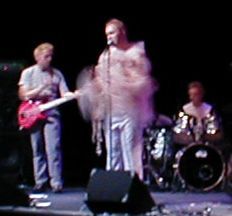 Friday night’s performance also included Antony doing a cover version of a Nina Simone burner “Be My Husband” and my only disappointment on Saturday was that this song was not repeated. As with a lot of the songs, Antony seemed absolutely charged with sexuality that radiated and perferated all conciousness. What is gender in this world now? Love is enough, for the faithful. And even though the group must be well practiced with performing all these songs, what is apparnt, is how fresh and perfect everything seems. With hardly the slightest flaw, the band moved through both night’s performances with such grace as befits professional opera and symphonic outfits. Again I must stress that I believe I have never heard a voice so clear and perfect and true as Antony’s. Even when it slightly wavers, one is kept on the cusp of listening and falling, and that waver becomes akin to the tender strings of his accompanying musicians.
Friday night’s performance also included Antony doing a cover version of a Nina Simone burner “Be My Husband” and my only disappointment on Saturday was that this song was not repeated. As with a lot of the songs, Antony seemed absolutely charged with sexuality that radiated and perferated all conciousness. What is gender in this world now? Love is enough, for the faithful. And even though the group must be well practiced with performing all these songs, what is apparnt, is how fresh and perfect everything seems. With hardly the slightest flaw, the band moved through both night’s performances with such grace as befits professional opera and symphonic outfits. Again I must stress that I believe I have never heard a voice so clear and perfect and true as Antony’s. Even when it slightly wavers, one is kept on the cusp of listening and falling, and that waver becomes akin to the tender strings of his accompanying musicians.
Both nights saw the introduction of the group’s newest single “I Fell in Love With a Dead Boy”, as Gothic as you like it, which helped to make clearer the connections between this whole view of New York gay cabaret, and the Goth followers here to see and idolize Tibet and Current 93. Having grown up in the smallest of small town America, where the gay scene, the Goth scene, the Punk scene and all mixed nightly in our own little world of “Misfit Island”, sharing two clubs between us and often our homes and days too, I found the connection was completely familiar. As outcasts in an area of limited resources, we blended easily and even took care of each other in times of combat and discomfort with the “normal” world. The contrasts complimented.
The indications of this seemed to be lost at first on some of the visitors to the Bloomsbury, who would have thought perhaps that it would be more appropriate for Tibet to have sponsored some newfound Gothic fledgling band. I think though, after the rivets of Antony’s charm were placed firmly in all our hearts, such notions were forgotten. Most importantly, what was also well forgotten was catergorization. This was proved on both nights as the audience called Antony & the Johnsons back onstage with so much adoration. Thus, there are many more political indications which could be associated with them. The group may gain enough recognition and power to create influences which would better our intolerant world and continue on a path of change which they have already begun. These nights however, were for the music, and the listening, Truly, I feel fortunate to have participated in that listening.
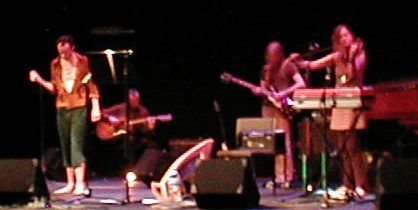
 Friday night, and David Tibet was introduced onstage (after a cute false start before the interval) by Joolie Wood‘s son in a touching moment to uproariously enthusiastic applause. The set list was largely drawn from Soft Black Stars, The Inmost Light series and the recent Sleep Has His House recordings, and consequently focus drew upon Tibet in his knee length britches and an air of apparent nervousness, or simple tiredness. The first impression of this and the following night’s set was that the days when Current Ninety Three came onstage and delivered a mix of impassioned Industrial folk music and raucous electronic and percussive noise have passed into something quieter, yet no less intense; the sound and passion reached from the front of house right up to the gods with crystal clarity thanks to The Bloomsbury’s excellent acoustics and relatively small dimensions.
Friday night, and David Tibet was introduced onstage (after a cute false start before the interval) by Joolie Wood‘s son in a touching moment to uproariously enthusiastic applause. The set list was largely drawn from Soft Black Stars, The Inmost Light series and the recent Sleep Has His House recordings, and consequently focus drew upon Tibet in his knee length britches and an air of apparent nervousness, or simple tiredness. The first impression of this and the following night’s set was that the days when Current Ninety Three came onstage and delivered a mix of impassioned Industrial folk music and raucous electronic and percussive noise have passed into something quieter, yet no less intense; the sound and passion reached from the front of house right up to the gods with crystal clarity thanks to The Bloomsbury’s excellent acoustics and relatively small dimensions.
Accompanied by Wood on violin, recorder and harp, stalwart Michael Cashmore and Gary Ramon from Sundial on electric guitar plus occasional guest spots, David Tibet’s performance was offset by a degree of underplayed quiet. Something was lacking, but not much really; Tibet’s voice and emoting through his half-spoken delivery was highlyeffective, but fell a little flat somehow into introspection. When Rose MacDowell slipped onstage for “A Sadness Song”, the crowd of course upped its enthusiasm level yet another notch, though time only allowed her one song in the main part of the show. The occasional awkward note and an atmosphere of edginess made for an uneasy tone in an evening which was both dramatic and persuasive in its drawing of an apocalyptic yet hopeful curtain across the shape of things that have indeed come to pass. Sometimes Current Ninety Three may not be the most adept (in a technical sense) collection of musicians – and no disrespect intended here – but what matters above all is the utmost conviction with which the varied ensemble drew the musical backdrop to David Tibet’s engagement with the ultimate sadness of the world.
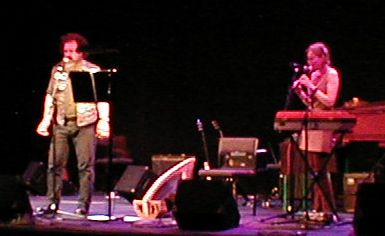 A brief note should be made of Karl Blake‘s song, when the magnificently-bearded man of Shock Headed Peters fame delivered “Ideal”, that group’s tale of heartfelt house-breaking sorrow for the days that have marched by, from a lusty pair of tonsils. Blake was decked out like a pagan biker in a horse-brass denim. It was like seeing Thor the Thunder God sing at Weyland Smithy, an entertaining and touching moment which demands more from him in the future – which it seems will come to pass later in the summer of 2001.
A brief note should be made of Karl Blake‘s song, when the magnificently-bearded man of Shock Headed Peters fame delivered “Ideal”, that group’s tale of heartfelt house-breaking sorrow for the days that have marched by, from a lusty pair of tonsils. Blake was decked out like a pagan biker in a horse-brass denim. It was like seeing Thor the Thunder God sing at Weyland Smithy, an entertaining and touching moment which demands more from him in the future – which it seems will come to pass later in the summer of 2001.
 The Saturday night Current 93 set was opened by the Beat poetry of Jeremy Reed, complete with tilted hat and velvet coat, and an introduction from David Tibet to a group who “may or may not be Current Ninety Three”. The night’s show was much more assured, though Tibet was in tears by its end, as were some of the faithful audience. There is nothing like a Current Nintety Three crowd for total absorbtion into the music and the sense of occasion – though this fervour did lead to roars of delight at the start of every song. This was distracting to say the least, but it did also ensure that each word was listened to in hushed reverence when the pieces got going into the exposition of a performance which was raw in its exposure of Tibet’s ever questing relationship with existence. He paced the stage, sometimes even knocking on it in something close to anguish, and the undoubted power of Tibet’s delivery got almost too personal. In the appropriately dramatic surroundings of the proscenium arch and lush velvet curtains of a theatre, the show took on an emotional impact far beyond the close-drawn quiet of the album versions which can be overwhelming enough in themsleves.
The Saturday night Current 93 set was opened by the Beat poetry of Jeremy Reed, complete with tilted hat and velvet coat, and an introduction from David Tibet to a group who “may or may not be Current Ninety Three”. The night’s show was much more assured, though Tibet was in tears by its end, as were some of the faithful audience. There is nothing like a Current Nintety Three crowd for total absorbtion into the music and the sense of occasion – though this fervour did lead to roars of delight at the start of every song. This was distracting to say the least, but it did also ensure that each word was listened to in hushed reverence when the pieces got going into the exposition of a performance which was raw in its exposure of Tibet’s ever questing relationship with existence. He paced the stage, sometimes even knocking on it in something close to anguish, and the undoubted power of Tibet’s delivery got almost too personal. In the appropriately dramatic surroundings of the proscenium arch and lush velvet curtains of a theatre, the show took on an emotional impact far beyond the close-drawn quiet of the album versions which can be overwhelming enough in themsleves.
 On both nights, the drama summoned wormed its way into the depths of the human condition, but from an angle which is less travelled than most. Something approaching religious ecstasy was on the verge of being promulagted, though with such power that it almost transcended the boundaries of performance. Heart-rending could be the correct description here, especially when accompanied by the solo piano of Maja Elliott or Cashmore’s simple yet effective semi-acoustic guitar. As the harmonium wheezed into “Immortal Bird” with its “If I die before I wake” quotation, the recent life-threatening illness overcome by Tibet became immediate, affecting. He truly was “Rising like Lazarus”, reviving himself and the audience in many ways throughout the weekend. The end times were put on hold through the act of exposing and confronting these days’ fascination with signs and sights of collapse and imminent chaos; then re-examining them through the meditative states of transient drone or slowly-drifting reedy buzz of a harmonium. Tibet rose up on a plateau of the ever-present voice and the queries it poses, the stories he told of God on high in oneself, partway between Buddhist mantra and Christian hymn, slipping over into Gnostic redemption through the evidence of life incarnate in itself and the power of words and music.
On both nights, the drama summoned wormed its way into the depths of the human condition, but from an angle which is less travelled than most. Something approaching religious ecstasy was on the verge of being promulagted, though with such power that it almost transcended the boundaries of performance. Heart-rending could be the correct description here, especially when accompanied by the solo piano of Maja Elliott or Cashmore’s simple yet effective semi-acoustic guitar. As the harmonium wheezed into “Immortal Bird” with its “If I die before I wake” quotation, the recent life-threatening illness overcome by Tibet became immediate, affecting. He truly was “Rising like Lazarus”, reviving himself and the audience in many ways throughout the weekend. The end times were put on hold through the act of exposing and confronting these days’ fascination with signs and sights of collapse and imminent chaos; then re-examining them through the meditative states of transient drone or slowly-drifting reedy buzz of a harmonium. Tibet rose up on a plateau of the ever-present voice and the queries it poses, the stories he told of God on high in oneself, partway between Buddhist mantra and Christian hymn, slipping over into Gnostic redemption through the evidence of life incarnate in itself and the power of words and music.
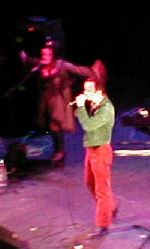 His voice pulled threads from another time and times future and past within and beyond this one. A combination of poet and soothsayer (in the literal sense of one who says truth), Tibet is a remarkable performer. He summoned close-up insights into the ways and states of being which centuries of faith and disbelief have left unresolved in the face of technological and spiritual advances. However close the sublime may be approached, to pin it down is as elusive as ever, and through his discursions on the matter, Tibet provides as many questions as possible answers through his works, talking his own truths and letting the listeners in to respond; above all to realise that life may be transitory, yet endless. This is where his undoubted talent lies, and through these performances it’s no wonder that the weight of the emotions becomes too much to bear sometimes, demanding release as much as rapt attention. No moment was more touching than on Saturday when Tibet dedicated “The Bloodbells Chime” to his mother and father, she present in the audience and his late father present in Christ and the Thunder Perfect Mind. Humour came too though when his mother called out “Isn’t it time you were in bed?” later on in the night.
His voice pulled threads from another time and times future and past within and beyond this one. A combination of poet and soothsayer (in the literal sense of one who says truth), Tibet is a remarkable performer. He summoned close-up insights into the ways and states of being which centuries of faith and disbelief have left unresolved in the face of technological and spiritual advances. However close the sublime may be approached, to pin it down is as elusive as ever, and through his discursions on the matter, Tibet provides as many questions as possible answers through his works, talking his own truths and letting the listeners in to respond; above all to realise that life may be transitory, yet endless. This is where his undoubted talent lies, and through these performances it’s no wonder that the weight of the emotions becomes too much to bear sometimes, demanding release as much as rapt attention. No moment was more touching than on Saturday when Tibet dedicated “The Bloodbells Chime” to his mother and father, she present in the audience and his late father present in Christ and the Thunder Perfect Mind. Humour came too though when his mother called out “Isn’t it time you were in bed?” later on in the night.
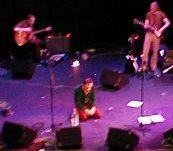 Touching and engaging as the quieter material was, when the band reassembles for various moments of Apocalyptic Folk favouties such as “Fields Of Rape”, the hall filled with rising flanged guitar drones and a more dynamically powerful state of dark beauty and released introspective tension. At the conclusion on the Saturday night, as Karl Blake returned on bass and a Stylophone introduction to “Coal Black Smith” which proceeded with extra guest guitar from Joe Budenholzer of Backworld, the finale was almost complete in this signature tune of less than savoury things lurking in the over-glorified rural past. All this and Tibet and Antony dueting on “A Gothic Love Song” too, the former’s spoken pity for a person past and her failure to see the true worth of tomes of magick and esoterica offset by Anthony’s almost shy delivery. He added harmonic depth to the song, drawing in a soft melodic accompaniment which was not quite perfect, but made for a suitably emotional end to a weekend of sometimes intense, ultimately human, passion.
Touching and engaging as the quieter material was, when the band reassembles for various moments of Apocalyptic Folk favouties such as “Fields Of Rape”, the hall filled with rising flanged guitar drones and a more dynamically powerful state of dark beauty and released introspective tension. At the conclusion on the Saturday night, as Karl Blake returned on bass and a Stylophone introduction to “Coal Black Smith” which proceeded with extra guest guitar from Joe Budenholzer of Backworld, the finale was almost complete in this signature tune of less than savoury things lurking in the over-glorified rural past. All this and Tibet and Antony dueting on “A Gothic Love Song” too, the former’s spoken pity for a person past and her failure to see the true worth of tomes of magick and esoterica offset by Anthony’s almost shy delivery. He added harmonic depth to the song, drawing in a soft melodic accompaniment which was not quite perfect, but made for a suitably emotional end to a weekend of sometimes intense, ultimately human, passion.
-Lilly Novak & Antron S. Meister-
